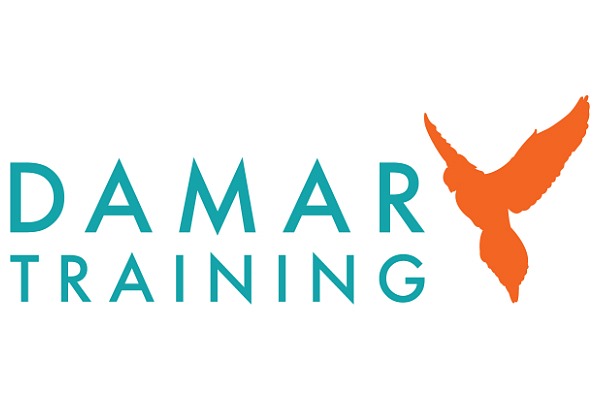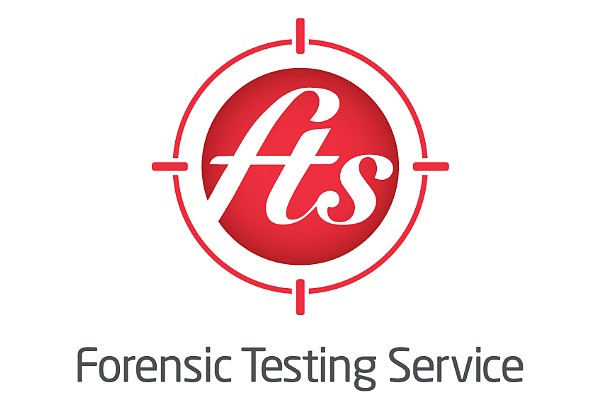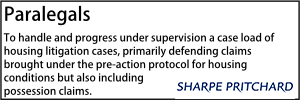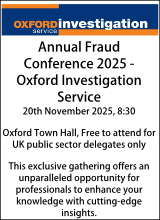Newsletter registration

Don’t refuse to mediate! Engage
Smile for the Camera?
ADHD diagnosis and disability
The coroner's duty to notify the DPP
Racist comments from one employee to another

Court of Protection case update: July 2025
Maximising ROI in renewable energy: Legal, technical, and financial strategies for net-zero success
Personal circumstances, public safety, and the planning balance
The Environment (Principles, Governance and Biodiversity Targets (Wales) Bill: the key provisions
Errors of law, materiality and remedies

What next for rent reviews?
Commonhold reform – the beginning of the end?
The CAT’s approach to Subsidy Decision Reviews: Fast, cheap and simple?
Millbrook Healthcare Limited v Devon County Council – Its impact on local government procurement
Early insights into the English Devolution and Community Empowerment Bill
The section 58 defence in the Highways Act 1980
Risk assessments in care proceedings: L-G and Re T
Turbulence ahead
PFI – a new era?
Costs in discrimination claims brought by litigants in person
The Building Safety Act and retrospective service charge protection
Right to Buy (RTB) leases — be warned about service charges
Awaab’s Law – implementation of Phase 1
Seven key insights: Lord Justice Birss considers AI in civil justice
Imperative requirements in homelessness: nuts and bolts on a bumpy roadmap to suitable accommodation
Neurodiversity in the Family Justice System Panel Discussion
Employment Law Webinar Series - May to July - 42 Bedford Row
Home Truths - Dissecting Section 16J: Criminal Confusion in the Renters’ Rights Bill - 42 Bedford Row
Home Truths: Grounds for Possession under the Renters' Rights Bill - 42 Bedford Row
Airport Subsidy Challenged in the CAT
IPA guidance 2025: Managing PFI distress and preparing for expiry
What might the public inquiry on child sexual exploitation look like
Data (Use and Access) Act – Updating Data Protection Law and more
High Court Dismisses Challenge to New Super Prison
AI, copyright and LLMs
Automatic suspensions and the public interest
FOI and communication
Too much?
Deploying ‘ADR’ in Planning & Compensation contexts
Removal from the village green register
The attendance of experts in family proceedings
Local authority enforcement powers and domestic beekeeping
Too little? When intervention is not required
Closures of educational sites
Public law case update Q1 2025
Must read
Families refusing access to support
Must read
Families refusing access to support
SPONSORED

Unlocking legal talent

How hair strand testing should be instructed for family court proceedings
Webinars
Local authority-owned law firm Pathfinder sees revenues rise to £10.3m, profits fall but to “more expected and sustainable level”
Pathfinder Legal Services, the law firm owned by four local authorities, saw revenues rise by 6% from £9.68m to £10.3m for the year ended 30 March 2022, but profit after tax fell to £304,996 from £868,092.
- Details
In its latest set of accounts Pathfinder, an alternative business structure, said: “The firm expects to build on the changes that it has made and see further growth in 2022/23. After the exceptional and turbulent 2020/21 financial year dominated by the Covid pandemic, 2021/22 has been equally challenging in different circumstances and has seen the company revert to a more expected and sustainable level of profitability. It has also achieved a position of cumulative retained profit.”
Debbie Carter-Hughes, the firm's Executive Director, said: “Pathfinder Legal Services is proud of the 2021/22 accounts. Whilst the last two financial years have been challenging with the global pandemic, the firm now faces the uncertainty of the current employment challenges and inflationary costs. We continue to work hard to provide excellent legal services to the public sector.”
The strategic report section of the 2021/22 accounts said Pathfinder “continues to deal with work connected to the pandemic (either delayed due to the lockdown and changes in working practices or directly resulting from the pandemic) and has found cases becoming more complex in nature”.
It added that this had seen the firm increase the number of staff it employs, review its working practices and, as a result, invest in its staff in relation to training and development. “With the reintroduction of in-person court hearings, the firm is developing its in-house advocacy offering and, with the geographical spread of employees, has continued to take on files for external clients elsewhere in the country with the ability to provide advocates.”
The report said Pathfinder had seen instructions from new external clients “but also, for the first time, had had to decline instructions from external organisations due to working at full capacity”.
It added that the firm continues to recruit to enable it to take on this external work and hopes to continue to develop its client base through 2022/23. The average monthly number of persons employed (including directors) in 2022 was 161, up from 145 the previous year.
During the 2021/22 year the firm changed its name from LGSS Law to Pathfinder Legal Services. This rebrand followed the disaggregation of LGSS, the previous shared service owned by Cambridgeshire County Council and Northamptonshire County Council, and the local government reorganisation of Northamptonshire County Council and the seven district and borough councils in the area. This led to the creation of two new unitary authorities, West Northamptonshire and North Northamptonshire, which are now shareholders in Pathfinder alongside Cambridgeshire County Council and Central Bedfordshire Council.
The 2021/22 report meanwhile highlighted that local authority budgets “continue to be strained, with the pandemic and the current cost of living crisis adding to the pressure on local authorities and public sector bodies to make savings”.
It said that in addition “the employment market has been difficult to navigate over recent years, especially in the local government and legal sectors, meaning that local authorities are competing for a limited pool of talent at a higher cost than ever before”.
Pathfinder suggested that “as a result authorities are seeking to derive better value for money from their legal spend, better legal services for the same or lower cost, and to consider new ways of working”.
It added: “The model developed by Pathfinder Legal Services Ltd draws on elements of a commercial model in its performance management and business-like culture/processes, but retains key elements of an in-house legal team, such as the client ownership and control. The ability to call on Pathfinder Legal Services Ltd’s services on an as-needed basis provides comfort to public sector organisations who may sometimes need additional legal capacity but cannot justify further permanent or locum staff.”
Senior Lawyer - Advocate
Director of Legal and Governance (Monitoring Officer)
Assistant Director - Legal & Governance
Lawyer (Sabbatical)
Head of Governance & University Solicitor
Head of Legal Shared Service
Locums
 Business and Property Masterclass #5: Interim Relief – Acting urgently and getting it right - Cornerstone Barristers
Business and Property Masterclass #5: Interim Relief – Acting urgently and getting it right - Cornerstone Barristers
10-09-2025 11:00 am
Online (live)
 Business and Property Masterclass #6: Rights of Light and Restrictive Covenants - Cornerstone Barristers
Business and Property Masterclass #6: Rights of Light and Restrictive Covenants - Cornerstone Barristers
23-09-2025
Online (live)
 Institutional landlord series: Possession – High Court Enforcement - 5 Pump Court
Institutional landlord series: Possession – High Court Enforcement - 5 Pump Court
22-10-2025 4:00 pm
Online (live)
 Institutional landlord series: Costs Recovery and Legally Aided Parties - 5 Pump Court
Institutional landlord series: Costs Recovery and Legally Aided Parties - 5 Pump Court
05-11-2025 4:00 pm
Online (live)
 HMPL Building Blocks: Tenancy Management – Assignment, Mutual Exchange and Succession - Devonshires
HMPL Building Blocks: Tenancy Management – Assignment, Mutual Exchange and Succession - Devonshires
12-03-2026
Online (live)
 Unpicking the Procurement Act Episode 2: Exclusion and Debarment - 39 Essex Chambers
Unpicking the Procurement Act Episode 2: Exclusion and Debarment - 39 Essex Chambers
On Demand
Online (pre-recorded)
 Unpicking the Procurement Act Episode 1: Overview and New Procedures - 39 Essex Chambers
Unpicking the Procurement Act Episode 1: Overview and New Procedures - 39 Essex Chambers
On Demand
Online (pre-recorded)
 Unpicking the Procurement Act Episode 3: Contract Modification - 39 Essex Chambers
Unpicking the Procurement Act Episode 3: Contract Modification - 39 Essex Chambers
On Demand
Online (pre-recorded)
 Unpicking the Procurement Act Episode 4: Challenges and Remedies - 39 Essex Chambers
Unpicking the Procurement Act Episode 4: Challenges and Remedies - 39 Essex Chambers
On Demand
Online (pre-recorded)
22-10-2025 4:00 pm
05-11-2025 4:00 pm










































































































 A-Z Family Law: Take Two! - 42 Bedford Row
A-Z Family Law: Take Two! - 42 Bedford Row  Executive Programme in Public Procurement Law and Policy - University of Nottingham
Executive Programme in Public Procurement Law and Policy - University of Nottingham  Property Law Roadshow 2025 - Bristol - St John's Chambers
Property Law Roadshow 2025 - Bristol - St John's Chambers  CUBAS Comprehensive Training & Licencing (Manchester), September 2025
CUBAS Comprehensive Training & Licencing (Manchester), September 2025  AI in the Public Sector Conference - Westminster Insight
AI in the Public Sector Conference - Westminster Insight  Activism in the Workplace - 42BR Barristers Employment Law Annual Lecture
Activism in the Workplace - 42BR Barristers Employment Law Annual Lecture  DoLS Authoriser Training - LPS Law
DoLS Authoriser Training - LPS Law  Property Law Roadshow 2025 - Cardiff - St John's Chambers
Property Law Roadshow 2025 - Cardiff - St John's Chambers  Annual Fraud Conference 2025 - Oxford Investigation Service
Annual Fraud Conference 2025 - Oxford Investigation Service  Ivy Legal - Certificate in Planning Enforcement
Ivy Legal - Certificate in Planning Enforcement